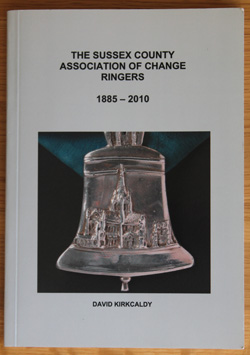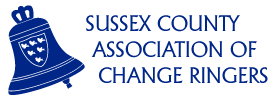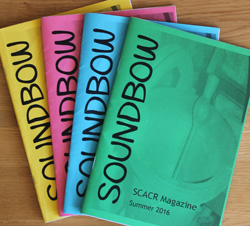Learning to Ring: FAQs
“Do I need to go to church to be a bellringer?”
Although most rings (sets) of bells are located in a church, you don’t need to be a member of the church (or even Christian) to learn to ring! Ringers come from all backgrounds and faiths (or none), and most local bands would be delighted to have a new recruit, whether or not they go to church.
“Do you need to be very strong?”
No – ringing is about skill, not strength!
“Is it like the Mars bar advert?!” (a.k.a. “Do you get lifted off the ground?”)
In a word, no!
“I find it difficult to get up/down steps”
That’s OK, there are lots of towers where you ring from the ground floor. For Sussex, you can search the tower listings for ground floor rings (tick the “ground floor” box in the Advanced Search).
“Isn’t bellringing just for older people?”
You can take up ringing at almost any time of life – we have ringers of all ages, from 9 to 90! Sussex is lucky to have a thriving Young Ringers group, and although small children may have to grow a bit before they can start to learn on tower bells, they can still enjoy handbells and mini-rings. Many people take up ringing in later life too.
“Isn’t it very loud?”
No - you don’t stand in the same room as the bells.
“But I don’t read music”
No problem – change ringing doesn’t use musical notation.
“I have a disability, can I still learn?”
Almost certainly – people who are deaf, blind or have some other disability can still have a go. As for able-bodied people, ringing is within most people’s capabilities, but is not necessarily everyone’s cup of tea. Why not have a go and see how you get on? Or, if ringing tower bells isn’t for you, why not try handbells instead (or as well!).
“How much does it cost?”
Learning to ring is usually free, but occasionally there’s a small fee (usually only for an organised course). You “pay back” by ringing for church services, weddings and special occasions – once you’ve reached a good enough standard.
“What do you wear?”
Something comfortable that is not too short or tight fitting is best. You need to be able to lift your arms above your head. High heels should be avoided!
“How long does it take to learn?” (a.k.a. “But you just pull on a rope, right?”)
The first step is to learn how to handle a tower bell safely and with sufficient control to be able to adjust its speed and to start and stop it at will. Everyone learns at their own pace, so you may master this in your first session, or it may take several sessions. Then you can start to ring with the rest of the band... You can stick to ringing simple things, or make it as complicated as you like – change ringing can be a lifelong learning experience.
“OK, you’ve persuaded me! How do I get started?”
Read our Learning to Ring page!








